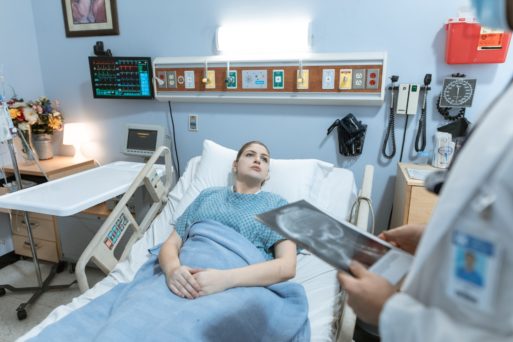
End-of-life-medical training aims to improve care for the dying and their families
Medical programs and institutions teach physicians, nurses and allied health practitioners how to save lives. But they often fail to prepare medical students to address death and dying. Medicare reimburses physicians for time spent discussing end-of-life topics with patients since 2016. But a national poll conducted by John A. Hartford Foundation shows that many doctors are unsure how to best engage in the subject. Hence, these important conversations often take place too late or not at all. In response to the need for better preparation, University of Arizona Health Sciences is introducing an end-of-life medical training program for its medical students. The curriculum will focus on age, gender, and multicultural related skills, so providers can better initiate these sensitive conversations with patients and their families.
The University’s Center on Aging is leading the development behind this groundbreaking end-of-life medical training program. They are devising common language that clinicians can utilize across all disciplines, which are widely varied according to each patient’s prognosis. Dr. Mindy Fain, co-director of the Center on Aging, hopes dialogues like these will soon become a part of routine medical care. “By starting that conversation, it starts the thinking and the conversation within the family. It allows people to begin to recognize that this is a part of life, that serious illness and death and dying are a part of life.”

Doctors can help to alleviate patient fears associated with death and dying.
While discussions on death and dying must be tempered based on a patient’s willingness and readiness, a Postgraduate Medical Journal article highlights the benefits of initiating the conversation sooner than later. Quality of life can be improved for patients, as well as their families, who may be better prepared to grieve. Early conversations help to further ensure that patient goals can be met within all fields of medicine, regardless of diagnosis or prognosis.
Baby boomers account for nearly one-fifth of the U.S. population. This means that more than 72 million Americans will be over the age of 65 by the year 2030. End-of-life medical training programs may fast become the norm to meet the growing need for quality elder care. As patients continue to demand whole person-centered care, healthcare providers must fine tune their abilities to address death and dying as part of their daily practice.
In its effort to support the initiative, the National Institute on Health provides physicians with practical tools to address end-of-life issues with patients and families: “A Physician’s Guide to Talking About End-of-Life Care.”

 End-of-Life Medical Training Program Launches
End-of-Life Medical Training Program Launches



 “Help Me, Helen”
“Help Me, Helen”















